Recent Blog Posts
How Can I Avoid Accusations of Bankruptcy Fraud?
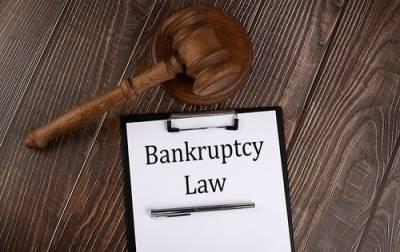 If you have significant debts, bankruptcy may be your best option for receiving relief and ensuring that your family will be able to live comfortably and cover your ongoing expenses. However, it is important to make sure you follow the correct procedures when filing for bankruptcy and provide accurate information when submitting bankruptcy forms. Misreporting financial information or other types of activities could lead to accusations of bankruptcy fraud. This could cause your bankruptcy case to be dismissed, or you could even face criminal charges. By understanding the reasons why a person may be accused of bankruptcy fraud, you can make sure you are avoiding these issues and taking the correct steps to discharge your debts.
If you have significant debts, bankruptcy may be your best option for receiving relief and ensuring that your family will be able to live comfortably and cover your ongoing expenses. However, it is important to make sure you follow the correct procedures when filing for bankruptcy and provide accurate information when submitting bankruptcy forms. Misreporting financial information or other types of activities could lead to accusations of bankruptcy fraud. This could cause your bankruptcy case to be dismissed, or you could even face criminal charges. By understanding the reasons why a person may be accused of bankruptcy fraud, you can make sure you are avoiding these issues and taking the correct steps to discharge your debts.
Forms of Bankruptcy Fraud
Criminal charges for bankruptcy fraud usually require prosecutors to show that a person intentionally provided false information or took improper actions to abuse the bankruptcy system. These actions may include:
Can Filing for Bankruptcy Help Me Get a Repossessed Car Back?
 Debts can be a significant problem that affect a family’s financial resources and its ability to pay ongoing expenses. In cases where debts become unmanageable, a family may experience a number of difficulties as they face harassment from creditors and attempts to collect what is owed. In cases where a person gets behind on payments on an auto loan, a creditor may take action to repossess the vehicle. In these cases, debtors will want to understand their options, including determining whether they may be able to get their vehicle back by filing for bankruptcy.
Debts can be a significant problem that affect a family’s financial resources and its ability to pay ongoing expenses. In cases where debts become unmanageable, a family may experience a number of difficulties as they face harassment from creditors and attempts to collect what is owed. In cases where a person gets behind on payments on an auto loan, a creditor may take action to repossess the vehicle. In these cases, debtors will want to understand their options, including determining whether they may be able to get their vehicle back by filing for bankruptcy.
Responding to a Repossession
Most of the time, debtors will want to address their debts before creditors take action to recover money owed or repossess property. Filing for bankruptcy will place an automatic stay on any collection actions and prevent the repossession of a vehicle. However, if a vehicle has already been repossessed, a debtor will need to act quickly to determine whether they can get their vehicle back. If a lender sells a repossessed vehicle through an auction, it will belong to the new owner, and the debtor will not be able to regain ownership.
Are There Alternatives to Bankruptcy That Will Help Improve My Credit?
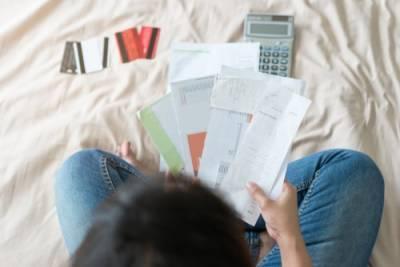 Most American consumers have debt in some form, and those who experience financial difficulties may struggle to repay these debts. Failing to make payments on time can have a significant effect on a person’s credit score, and this may make it more difficult to obtain loans or other forms of credit in the future. A low credit score can also affect a person in other ways, including their ability to find employment or obtain housing. While those who are struggling with debts may be able to receive relief by filing for bankruptcy, this will have a further negative impact on their credit score. As they determine how to rebuild their credit, a person may consider some alternatives to bankruptcy, and by consulting with an experienced attorney, they can understand their best options for receiving debt relief and maintaining financial stability.
Most American consumers have debt in some form, and those who experience financial difficulties may struggle to repay these debts. Failing to make payments on time can have a significant effect on a person’s credit score, and this may make it more difficult to obtain loans or other forms of credit in the future. A low credit score can also affect a person in other ways, including their ability to find employment or obtain housing. While those who are struggling with debts may be able to receive relief by filing for bankruptcy, this will have a further negative impact on their credit score. As they determine how to rebuild their credit, a person may consider some alternatives to bankruptcy, and by consulting with an experienced attorney, they can understand their best options for receiving debt relief and maintaining financial stability.
What Are My Options for Protecting Assets During Bankruptcy?
 If you have significant debts that you are struggling to repay, you may be considering bankruptcy. However, you may be worried that if you file for bankruptcy, you could lose certain assets that you own, such as your home, your family’s vehicles, or valuable possessions. By understanding the laws that will apply to you when you file for bankruptcy or seek other forms of debt relief, you can determine your options for asset protection and the best ways to address your debts and maintain financial stability.
If you have significant debts that you are struggling to repay, you may be considering bankruptcy. However, you may be worried that if you file for bankruptcy, you could lose certain assets that you own, such as your home, your family’s vehicles, or valuable possessions. By understanding the laws that will apply to you when you file for bankruptcy or seek other forms of debt relief, you can determine your options for asset protection and the best ways to address your debts and maintain financial stability.
Using Bankruptcy Exemptions
If you are planning to file for Chapter 7 bankruptcy, you may be required to turn over certain assets, which will be liquidated to repay as much of your unsecured debts as possible before these debts will be discharged. However, certain types of property are exempt from liquidation. As you prepare for bankruptcy, you may be able to utilize these exemptions to avoid turning over your assets.
UPDATE: Can I Keep My Car if I File for a Texas Bankruptcy?
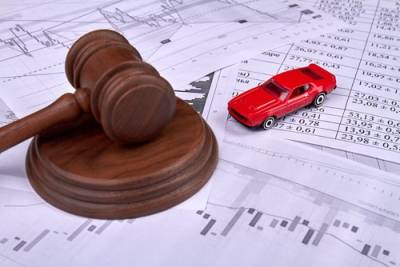 Originally published: February 28, 2020 -- Updated: December 2, 2021
Originally published: February 28, 2020 -- Updated: December 2, 2021
UPDATE: In addition to understanding how filing for bankruptcy may affect ownership of a vehicle, a debtor will want to determine whether they can use a “cramdown” to reduce the amount they owe on an auto loan while addressing other debts during the bankruptcy process. This option is available in a Chapter 13 bankruptcy, and it can ensure that a person will avoid the potential loss of their vehicle while still being able to make affordable payments.
A cramdown is a reduction in the amount owed on an auto loan. A debtor may be eligible for a cramdown if the remaining amount that they owe to a lender is greater than the actual cash value of the vehicle. In addition, the debtor must have originally purchased the vehicle at least 910 days before filing for bankruptcy. For example, if $20,000 is owed on a loan, but the car’s market value is $13,000, the amount of the loan may be reduced to $13,000. The remaining $7,000 will be classified as an unsecured debt and included in the debtor’s Chapter 13 repayment plan. By reducing the amount of this loan and discharging other debts, a person can ensure that they will be able to maintain financial stability and avoid the loss of their vehicle.
How to Prepare for Your 341 Meeting After Filing for Bankruptcy
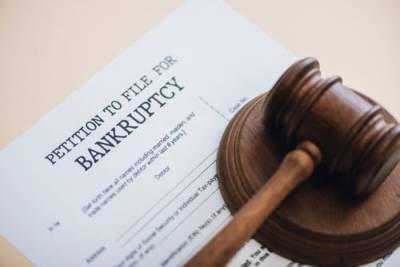 If you have significant debts that you are struggling to repay, bankruptcy may be your best option for regaining financial security and ensuring that you will be able to address your ongoing needs going forward. By filing for bankruptcy, you can put a stop to harassment from creditors and prevent collection actions such as wage garnishment, repossession of property, or home foreclosure. You can then determine your best options for receiving relief from the debts you owe.
If you have significant debts that you are struggling to repay, bankruptcy may be your best option for regaining financial security and ensuring that you will be able to address your ongoing needs going forward. By filing for bankruptcy, you can put a stop to harassment from creditors and prevent collection actions such as wage garnishment, repossession of property, or home foreclosure. You can then determine your best options for receiving relief from the debts you owe.
One of the most important steps during the bankruptcy process is the “meeting of creditors,” which is commonly known as the “341 meeting,” since it is addressed in section 341 of the U.S. Bankruptcy Code. This meeting usually takes place at a bankruptcy court, and it will be conducted by the trustee assigned to the bankruptcy case. While creditors or their legal representatives may be present at this meeting, in many cases, they do not choose to attend. By understanding the issues that will be addressed during the 341 meeting, you can make sure you are properly prepared, and you can avoid any issues that may affect your ability to complete the bankruptcy process.
How Can I Address Harassment From Debt Collectors and Creditors?
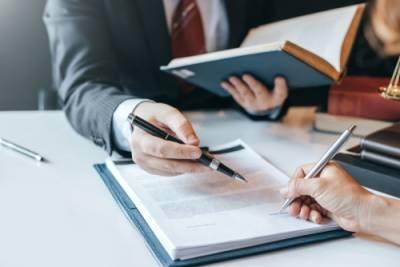 Debts are a reality for most Americans, and while most people are able to make ongoing payments, some may experience financial difficulties that make it difficult to pay back what is owed. If you have gotten behind on payments, you may have begun receiving calls from creditors. Debt collectors can sometimes take aggressive actions to attempt to recover money, and if you have experienced harassment by creditors, you will want to determine the best ways to address this issue. A skilled bankruptcy lawyer can advise you of your options and work with you to determine the forms of debt relief that are available.
Debts are a reality for most Americans, and while most people are able to make ongoing payments, some may experience financial difficulties that make it difficult to pay back what is owed. If you have gotten behind on payments, you may have begun receiving calls from creditors. Debt collectors can sometimes take aggressive actions to attempt to recover money, and if you have experienced harassment by creditors, you will want to determine the best ways to address this issue. A skilled bankruptcy lawyer can advise you of your options and work with you to determine the forms of debt relief that are available.
Debtor Rights Under the Fair Debt Collection Practices Act
Federal laws dictate the rights of consumers and the restrictions that apply to creditors who attempt to collect debts. The Fair Debt Collection Practices Act (FDCPA) ensures that debtors are protected from harassing behavior such as:
How Are Family Support Obligations Addressed During Bankruptcy?
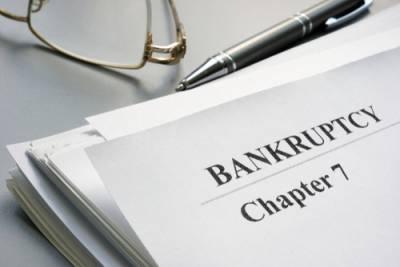 When a person or family is struggling to pay the debts they owe, bankruptcy can be a good option for eliminating debts or repaying some debts while avoiding issues such as foreclosure. Different types of debts may need to be addressed during the bankruptcy process, and a person will need to understand how their obligations to pay child support or spousal support will be affected. Determining the role that bankruptcy will play as they make ongoing support payments or address unpaid payments can ensure that a person will be able to maintain financial stability going forward.
When a person or family is struggling to pay the debts they owe, bankruptcy can be a good option for eliminating debts or repaying some debts while avoiding issues such as foreclosure. Different types of debts may need to be addressed during the bankruptcy process, and a person will need to understand how their obligations to pay child support or spousal support will be affected. Determining the role that bankruptcy will play as they make ongoing support payments or address unpaid payments can ensure that a person will be able to maintain financial stability going forward.
Bankruptcy and Domestic Support Obligations
Bankruptcy will allow some debts to be discharged, meaning that the debtor will no longer be required to pay what is owed. However, domestic support obligations, including child support and spousal support, cannot be discharged through bankruptcy. A person will be required to meet any support obligations ordered by a family court, and any past-due payments will need to be made up, along with any interest that may apply.
5 Common Myths About Bankruptcy and the Truth About Debt Relief
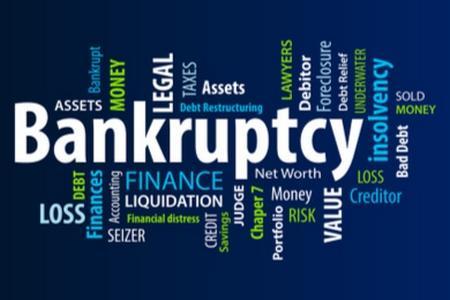
While most people understand that bankruptcy is an option for eliminating debts, there are a lot of misconceptions about the bankruptcy process, the laws that apply to those who file for bankruptcy, and the ways filing for bankruptcy will affect a person’s life. By understanding exactly what the bankruptcy process entails, a person can determine whether it may be the best choice in their situation. Those who have outstanding debts that they are having trouble repaying can work with an attorney to determine their options for receiving relief.
Bankruptcy Myths and Misconceptions
Some of the most common bankruptcy-related misunderstandings include:
-
Bankruptcy is only for people who are financially irresponsible - This myth is based on the misconception that people only have debts because of reckless spending or mismanagement of money. However, there are many cases where unexpected issues in a person’s life can put them in a difficult position. Medical debts are a common reason why people file for bankruptcy, and in many cases, there is no way to prepare for an unexpected health issue that may require expensive treatment. Layoffs and job losses can also make it difficult for a family to make ongoing payments on a mortgage or other loans, and bankruptcy may become necessary to ensure that they can regain financial stability. It is important to remember that a bankruptcy filing is not a reflection of a person’s moral character. In most cases, it is a measure that may be taken to address unexpected life changes and ensure that a family can meet its ongoing needs.
How Is a Chapter 13 Bankruptcy Affected by a Divorce?
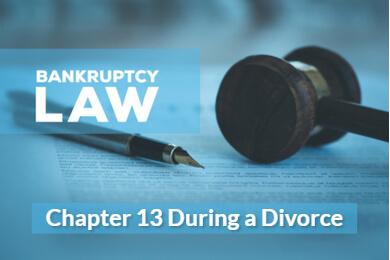
When a family is struggling with debt, Chapter 13 bankruptcy can often be a good solution that will allow them to consolidate certain debts into a single payment plan, discharge debts after the payment plan is completed, and maintain ownership of their home and other property. However, if a married couple decides to get a divorce before they have completed their Chapter 13 repayment plan, they will need to determine how their bankruptcy case will be affected and what steps they can take to address their outstanding debts.
Options for Chapter 13 Bankruptcy During a Divorce
Couples who have filed for Chapter 13 bankruptcy and begun making payments on a repayment plan have multiple options if they choose to get divorced. These include:
-
Continue the repayment plan - A couple may agree that they will both continue to make payments until their Chapter 13 repayment plan has been completed. This may be a good option if a couple is close to completing all of the payments in their plan or if both spouses will have the means to continue making payments after getting divorced. A couple may also be able to request a modification of their repayment plan based on reductions in disposable income due to the expenses of maintaining two separate households. As part of their divorce settlement, spouses will need to agree on how they will divide payments. If one party fails to make payments, this may leave the other party in a difficult position, so spouses will need to make sure they both understand their requirements as they complete their Chapter 13 case.






